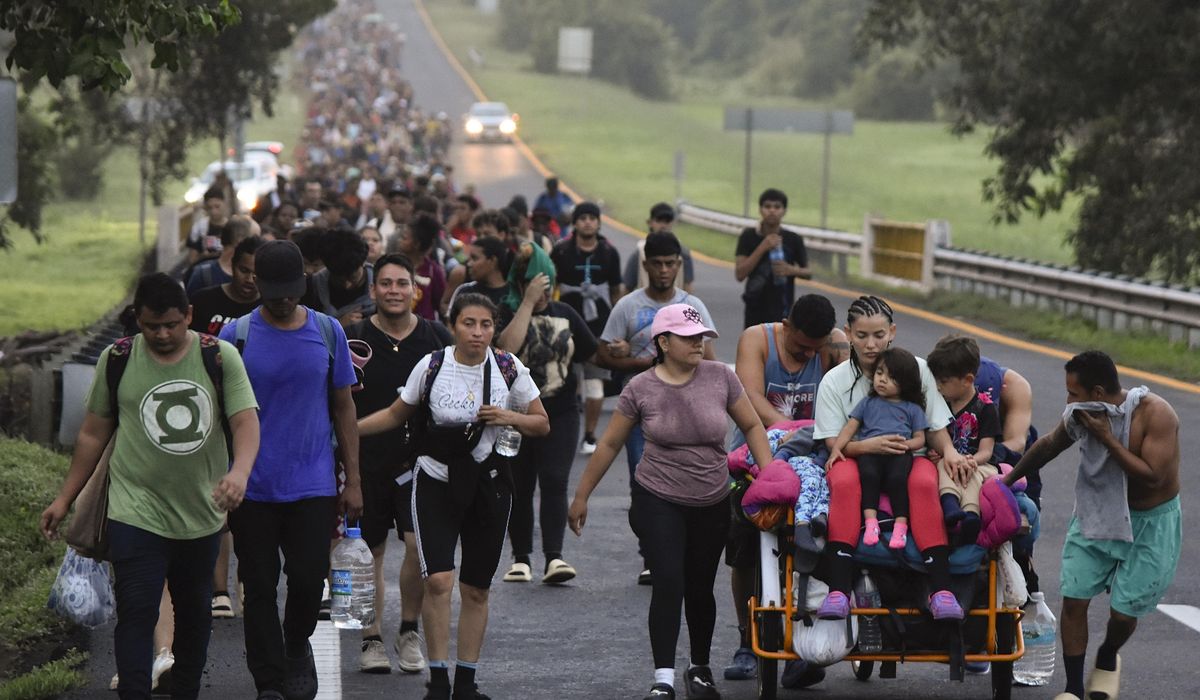


A federal judge in Seattle issued a temporary restraining order on Thursday blocking the administration from carrying out President Trump’s plan to deny automatic citizenship to children of illegal immigrants.
District Judge John Coughenour blasted the president’s executive order as an affront to the Constitution, according to local news media.
“I’ve been on the bench for over four decades. I can’t remember another case where the question presented is as clear as this one is. This is a blatantly unconstitutional order,” Judge Coughenour said, according to The Seattle Times.
His restraining order keeps the policy on hold for two weeks while the legal case develops.
Judge Coughenour attacked the Justice Department for attempting to defend Mr. Trump’s policy.
“Frankly, I have difficulty understanding how a member of the bar could state unequivocally that this is a constitutional order,” the judge said. “It just boggles my mind.”
Mr. Trump’s order, signed on his first day in office, declares illegal immigrants and temporary visitors to be outside the jurisdiction of the government for purposes of the 14th Amendment, which otherwise extends automatic citizenship to children born on U.S. soil.
The amendment was adopted in the wake of the Civil War to overturn the Dred Scott decision and make clear that those who had been part of slavery had the full rights of citizenship.
Mr. Trump’s order has already been challenged in courtrooms from Boston to Seattle, but Judge Coughenour was the first to act.
The 14th Amendment reads, in part: “All persons born or naturalized in the United States, and subject to the jurisdiction thereof, are citizens of the United States.”
The legal issue is who qualifies for the jurisdiction language.
In an 1898 case, Wong Kim Ark, the Supreme Court ruled that a child born to two Chinese migrant parents was entitled to automatic citizenship.
That ruling acknowledged three exceptions to the 14th Amendment: children born to diplomats, those born to mothers in an enemy army occupying U.S. territory, and children born on Native American tribal lands, which at that time were considered outside of U.S. jurisdiction because tribes have quasi-sovereignty.
Most legal scholars say that ruling closed the door on attempts to limit birthright citizenship and it would take a constitutional amendment.
Some scholars argue that there’s enough wiggle room for Congress to act by law.
But Mr. Trump said he has concluded he can do it through executive order.
“The Fourteenth Amendment has always excluded from birthright citizenship persons who were born in the United States but not “subject to the jurisdiction thereof,” he said in his order, signed Monday.
Under his plan, children born on U.S. soil where neither parent is a citizen or legal permanent resident would not qualify for automatic citizenship. That would exclude children born to illegal immigrants and those on temporary visas, such as guest-worker or student visas.
Mr. Trump ordered federal officers to refuse to issue or accept documents that would recognize citizenship in those cases.
Acting Assistant Attorney General Brett A. Shumate had argued to Judge Coughenour, a Reagan appointee, that the case was premature since Mr. Trump’s order didn’t kick in for nearly four more weeks.
He also argued the Constitution is less clear than the judge believed. For one thing, he said, the 1898 court case involved two parents who were legal permanent residents of the U.S., although not citizens.
And Mr. Shumate said an 1884 ruling by the Supreme Court involving a birth to an Indian tribe showed there are valid exceptions.
The challenge to Mr. Trump was led by the state of Washington and joined by three other Democrat-led states, Arizona, Illinois and Oregon.
• Stephen Dinan can be reached at sdinan@washingtontimes.com.
